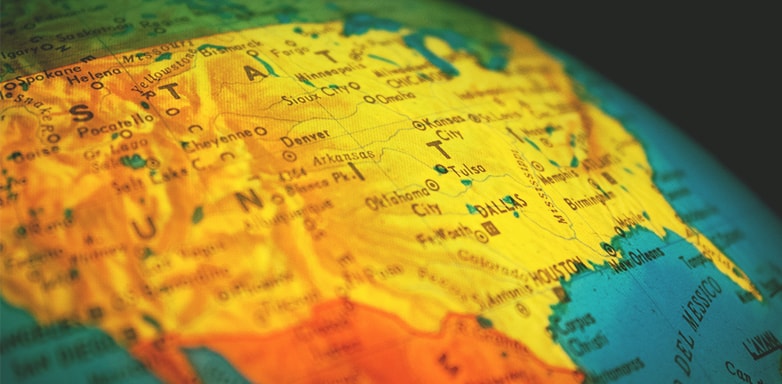The Importance of “Where” When Considering Surrogacy
December 16th, 2017 | 3 min. read
By Nora Bolger


Choosing to have a family is one of the most joyous and exciting decisions an individual will ever make. The process can be overwhelming at times, as there are a multitude of things for gay men to consider when starting this process. Deciding whether to adopt or have a biological child is just the beginning. From there, individuals and couples start to ask “how?” As in, how do I start the process? How affordable is this? Once the decision is made to have a biological child, the questions lead to “who?” Who will be the egg donor? Who will be the gestational carrier? Who will help us with this?
It is important for gay men to also consider “where?” Laws governing surrogacy vary from state to state, making some states more favorable than others for the LGBTQ community, their gestational carriers, and their unborn child.
First, it is important to understand that some states have laws that are unfavorable for LGBTQ couples. For example, New York and Washington, D.C. forbid surrogacy, and anyone who enters into a surrogacy contract can be fined up to $10,000. Other states are not as definitive in their restrictions, yet the laws can still present issues for couples. One such state is New Jersey; the state forbids traditional surrogacy but there is some latitude for gestational surrogacy. Gay couples should not assume that generally liberal states are favorable; often times the state laws do not reflect the people’s LGBTQ views.
Some states are neutral. By omitting regulations, these states leave anyone entering into a surrogacy contract or agreement in a precarious and unpredictable situation, but these states can be amenable to gestational surrogacy. A surprising number of states do not directly address surrogacy: Colorado, Georgia, Hawaii, Idaho, Montana, North Carolina, Maine, Massachusetts, Minnesota, Mississippi, Missouri, Montana, New Mexico, Rhode Island, South Carolina, South Dakota, Vermont and Wyoming.
Other states are considered favorable because of their written laws and, in the best scenarios, because of court decisions interpreting and upholding the laws. For example, the Supreme Court of Connecticut ruled on Raftopol v. Ramey (2014), where both fathers sought to secure parental rights prior to the birth rather than going through the adoption process upon their birth. Similarly, California law has been reinforced in favor of surrogacy in the California Supreme Court rulings of Calvert v. Johnson (1993) and Buzzanca v. Buzzanca (1998). This is good news for anyone entering a surrogacy contract in these states, gay or straight.
Victoria Ferrara, the surrogacy lawyer who represented the father in Raftopol v. Ramey, explains: “Parents don’t want to hear that they will have to adopt their baby after the birth. They will do it if they have to, but it is hard for them to wrap their head around the idea that this isn’t their baby yet. It has practical and emotional implications.”
So how does a couple determine “where”? The surrogacy laws are applied based on where the baby is born. Therefore, couples may reside in one state, the gestational carrier in a second state, and the baby can be born in a third state. However, for practical reasons, it is generally recommended that the gestational carrier live in a surrogacy-friendly state.
Of all the questions that arise for gay men who want to start their families, it turns out one of the most important questions is “where?” Along with reviewing a potential surrogate’s medical and social history, intended parents should also be mindful of the state in which she resides. If there is a choice between two potential carriers with one residing in a carrier-friendly state, this is likely the better choice.
Through her work with RMACT’s third party reproduction team, Nora has been supporting fertility patients, cancer patients and the LGBTQ community for the past 13 years. She has extensive experience with egg donors, egg recipients, surrogacy and fertility preservation.
